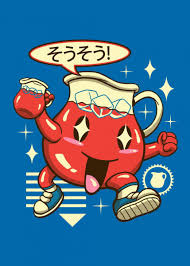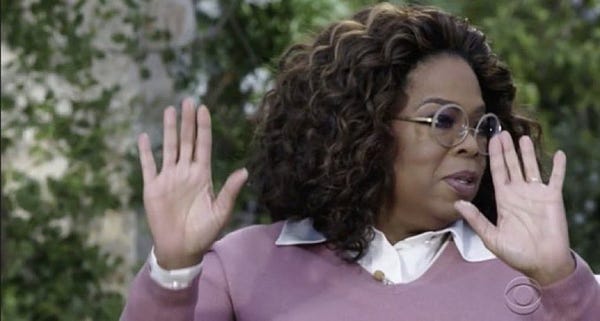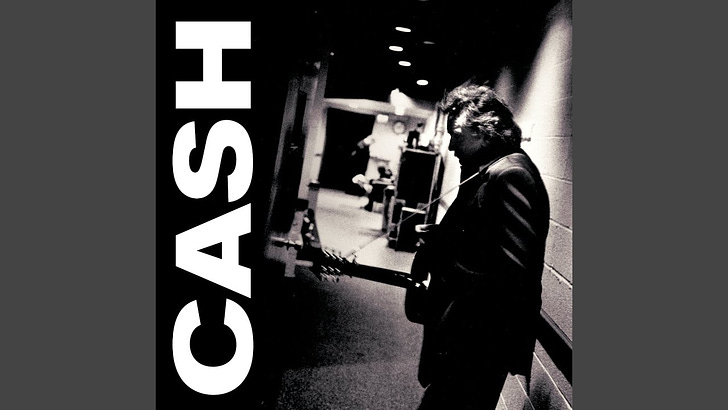

Discover more from Depresh Mode
Here's exactly what you should do to observe the pandemic anniversary
No, it's not "write a click-bait headline"
Anniversaries can be cause to celebrate. Celebrating the wedding anniversary, for instance. They can also be cause to… not celebrate. When it’s the anniversary of a traumatic or sad event, someone’s death, losing a job, some kind of unraveling, it can bring a rush of feelings with an intensity you thought was behind you.
Right now, a lot of folks are remembering this time last year when covid crashed down the door into the reality of our lives, like a malevolent Kool-Aid Man.
Well, Kool-Aid Man has always seemed harmful but you get me.
This is when we found out Tom Hanks and Rita Wilson had it and we feared for their lives. And, ominously, this happened.


Schools and offices started shutting down. I was at the Marketplace studios in Manhattan doing an interview with Jameela Jamil and there were fewer people on the job at their cubicles coming out of the interview than when I went in.
It’s interesting to mark the occasion and think back on the rollercoaster of events this past year. And I think it might be cathartic, for those of us who didn’t die, to know that we have made it this far. It also might be heavier than you expected. We know this about trauma, that every year on a given date might be a little heavy.
My brother Rick died by suicide on April 4, 2007. On April 4 of the following year, I was living in St Paul, Minnesota and I wrote Rick a long letter, by hand, on paper, then threw it into the Mississippi River. I expected it to be dramatic and cleansing. Instead, it felt a bit silly. I could kind of sense Ghost Rick rolling his eyes. Usually to talk to him it involved quiet mumbling conversation. Live and learn.
I think the best thing to do is decide how you want to mark this cultural anniversary for yourself. Exercise that free will thing you got, make a plan based on what is going to be the most meaningful toward how you want to live and THEN execute that plan. Don’t just blow it off or dive all the way in based on what you feel like is expected. Make it a self-treatment.
Here are some options:
Make some art to commemorate the crazy shit of 3/20 to 3/21. Painting, mural, opera, poem. It was big and it’s good to honor big things through art.
Ignore it entirely. Nothing special is happening except the memory of something scary. And if it’s scary, why dredge it up?
Celebrate the coming peace. I remember being told that it might be years before a vaccine arrived and it might never happen. But it’s hear, the distribution is going better and soon we’ll be at a point where every drug store has it for free, you just stop by. That’s incredible! Hooray for that!
Double down on precautions. Wear two masks. Three! Resist the urge to congregate even as the weather gets nice. Honor those we’ve lost by staying in formation as a soldier until peace truly arrives.
Write to friends you miss, dead or alive, and tell them you miss them.
Good luck. Whatever you choose, good choice!
I like what Tracy Letts had to say about art during pandemic.
As for me, I started a bunch of things and finished very few. I’ve had a hard time concentrating long enough to do so and having enough confidence that what I have to say matters. Yes, because of my previous work, I get contacted all the time by people who tell me that my work matters and that is golden and wonderful. Still, tough year.
I see a headline like this and I think, “Ooh, I bet I know the answer. It’s WELL.”
I mean, look, it’s great to have him as an advocate. Regardless of your politics you have to admit he’s smart and pretty cool. But I kind of get the same feeling as I do with that Obama-Springsteen podcast, namely, “Yeah, but what if we’re not as cool and successful as you?”
Still, read the article if you like. I bet it’s full of three-pointers that hit nothing but net.
Jason Cherkis writes in the New York Times about how a higher minimum wage could reduce the rate of suicide.
I came to realize over time how irrelevant diagnostic labels such as bipolar disorder and major depression are to understanding deaths by suicide. I noticed that all too often, these patients’ troubles began with childhood trauma and frequently ended with economic deprivation. One person who later died by suicide told her therapist that she sold her jewelry to make ends meet; another asked his therapist how to get a couch for his apartment. So many people who died by suicide weren’t just starving for therapeutic attention. They were starving.
I haven’t studied this anywhere close to as much as Cherkis but I’ve been yelling about this for years. When you look at the growing economic disparity in America, when you see the rapidly decreasing opportunities to advance in an economy where the deck is stacked, of course you lose hope. Of course you do. Why? Because there’s less hope. The system is rigged.
If a participant in an economy like that can find a way to not be so fucking terrified all the time, they might not get to the point of opting out of life itself.
Subscribe to Depresh Mode
A newsletter and a podcast about tricky brains.













I lost my job just *before* the pandemic. It was a mixed blessing as the workplace had become extremely stressful. Not sure I would have coped well with *that* and the pandemic. Fortunately, it was not stressful financially. I had plenty of projects to do at home. We were already buying my parents' home and moving them to the "in-law" suite out back. We are mostly done with that process and the job market is opening up. Should be cause for celebration, no? Instead, I find myself somewhat terrified of going back to work. I don't want the conflict and having to accommodate ridiculous demands of the boss. I'm sure it will all work out. Just funny how things manifest in unexpected ways.